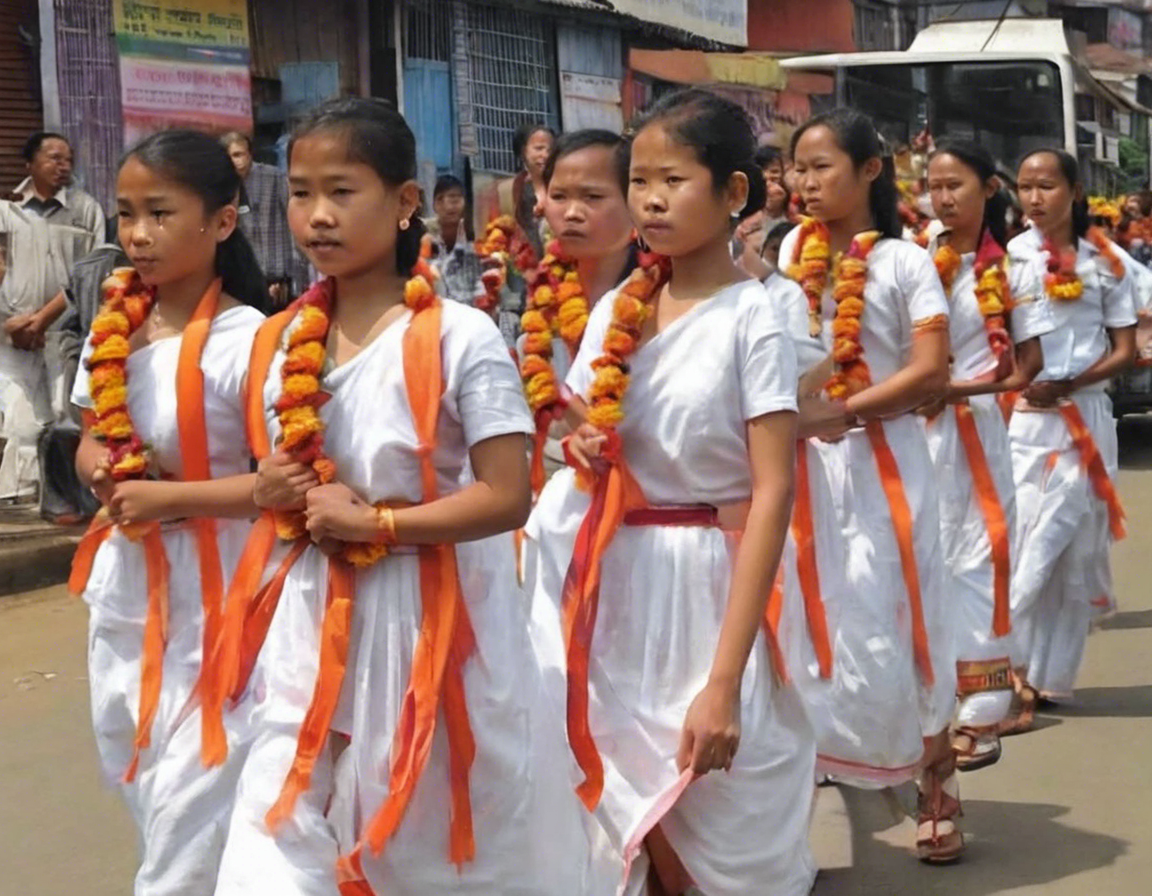On a fateful day in July 2004, a young girl from Manipur was dragged out of her home by a group of men, paraded through the streets, and forcefully shaved in full public view. The reason? She allegedly had an affair with a man from a different community. This incident not only shook the nation but also spotlighted the deep-rooted issues of racism, discrimination, and violence against women that persist in certain parts of India.
The Incident
The 21-year-old girl, whose name remains undisclosed for privacy reasons, was subjected to this horrific act in Imphal, the capital city of Manipur. The mob, led by the wife of the man with whom the girl was rumored to be involved, barged into her home, dragged her out, and proceeded to shame her in the most dehumanizing manner imaginable. The images of her distraught face, tears streaming down as her hair was ruthlessly cut off, resonated with people nationwide and sparked outrage and demand for justice.
Cultural Context
Manipur, a northeastern state in India, is known for its rich cultural heritage and diverse ethnic groups. However, it is not untouched by the prejudices and stereotypes that often plague interactions between different communities. The incident of the Manipur girl being paraded and shamed highlighted the toxic blend of patriarchy, community hierarchy, and moral policing that can give rise to such barbaric acts.
Legal Ramifications
The incident not only raised questions about the violation of the girl’s rights but also underscored the need for stronger legal frameworks to address such atrocities. While the perpetrators were eventually arrested and some justice was served, the incident shed light on the loopholes in the system that allow such acts to happen in the first place.
Social Media Outcry
As news of the incident spread like wildfire, social media platforms became a hotbed of discussions, protests, and calls for justice. The collective outrage and solidarity shown by people from all walks of life played a crucial role in ensuring that the girl received support and that the perpetrators were held accountable for their actions.
Impact on the Victim
The psychological and emotional trauma experienced by the Manipur girl cannot be overstated. Being subjected to such public shaming and humiliation can have long-lasting effects on an individual’s mental well-being and sense of self-worth. The incident also threw light on the need for psychosocial support and counseling services for victims of such heinous crimes.
Moving Forward
While the incident of the Manipur girl being paraded and shamed remains a dark chapter in India’s recent history, it also served as a wake-up call for society to address the deep-seated prejudices and biases that allow such acts to occur. Education, awareness, and strict implementation of laws are crucial in preventing such atrocities and ensuring that every individual is treated with dignity and respect, irrespective of their background.
FAQs
1. What were the reasons behind the parading and shaming of the Manipur girl?
The girl was targeted due to allegations of having an affair with a man from a different community, which was deemed unacceptable by the perpetrators.
2. Did the legal system provide justice to the victim?
While the perpetrators were arrested, the incident shed light on the need for stronger legal frameworks to address such crimes effectively.
3. How did social media play a role in addressing the issue?
Social media platforms became a rallying point for protests, discussions, and demands for justice, showcasing the power of collective outrage in such cases.
4. What long-lasting effects can such incidents have on the victim?
Public shaming and humiliation can lead to significant mental health issues and trauma, underscoring the need for psychological support for victims.
5. How can society prevent such incidents from happening in the future?
Education, awareness, and strict enforcement of laws are essential in combating deep-rooted prejudices and ensuring the safety and dignity of every individual.
